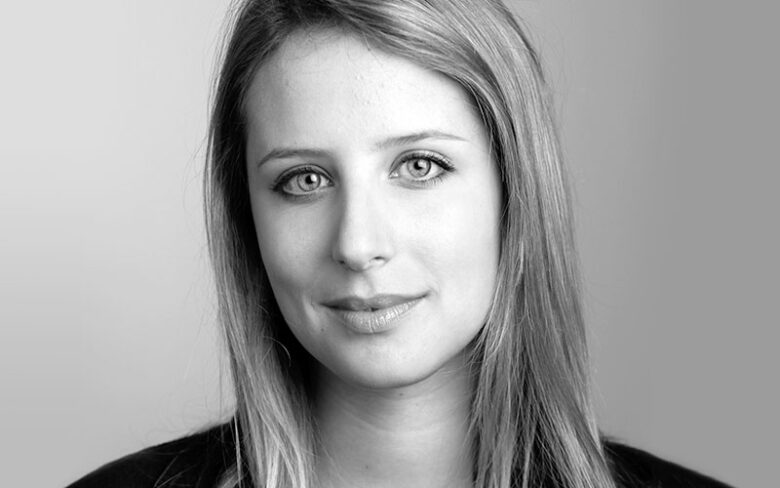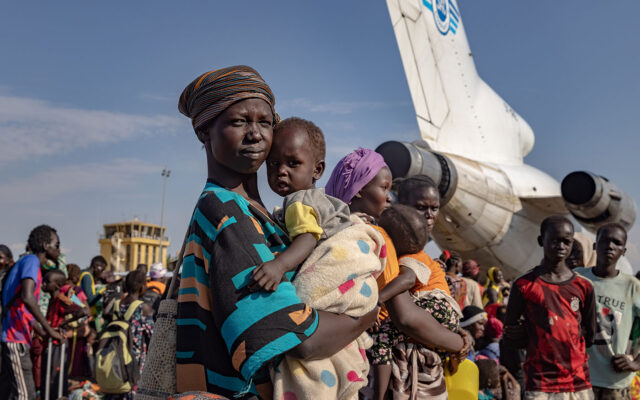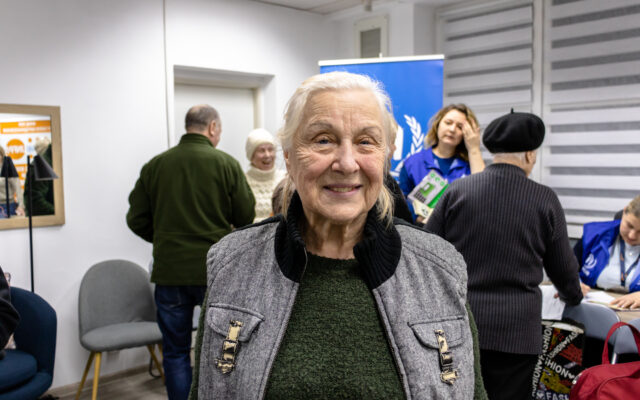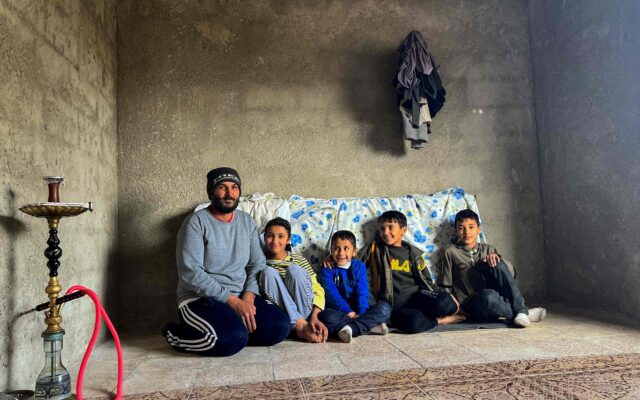Interview: Rebecca Perlman, UK for UNHCR’s founding Chair
We caught up with Rebecca about the evolution of the charity during her time on UK for UNHCR’s board, and the importance of supporting the refugee cause.
03.04.24
Rebecca Perlman was UK for UNHCR’s founding Chair, leading the establishment of the charity in 2019 and its launch as the UN Refugee Agency’s national partner from 2020. Her term as Chair ended in mid-2021 following which she continued to support the charity as a Trustee until November 2023. Rebecca remains a fierce champion of refugee rights and UK for UNHCR’s work.

Rebecca Perlman, UK for UNHCR’s founding Chair
What motivated you to help found UK for UNHCR?
I’m the granddaughter of refugees on both sides of my family. The gratitude that my grandparents always had for the countries that took them in, and for the people and organisations that supported them, was ever-present throughout my childhood.
When the opportunity arose to support UNHCR’s work, it felt like a very meaningful way to contribute to a cause that I’m not only passionate about, but that has shaped my life and the life of my family.
What do you think has contributed to the growth of UK for UNHCR?
UK for UNHCR’s success comes from its phenomenally hard-working and committed people, from those who bravely share their lived experience to support our work, to our compassionate supporters and partners, and our incredibly dedicated staff and Trustees. That passion and commitment to the cause drives through everything the charity does.
Fundamentally, UK for UNHCR’s growth also speaks to the importance of UNHCR’s lifesaving work, because that’s what the charity is here to support. Working each day to ensure every person displaced by conflict or persecution can feel safe again and build a better future.
What do you see as the biggest challenges for our sector and the wider cause?
In the short term, there’s a real challenge in terms of public perception of refugees and the harmful politics around refugees in some countries. Additionally, growing pressures on government funding all over the world are leaving many humanitarian programmes desperately underfunded.
This means the role of private sector funding for the refugee cause has become even more important. Financial contributions are vital, and it is also about being positive advocates for change, such as helping fight misinformation and discrimination.
When I think about longer-term trends, particularly around climate change and the rise in conflict we are seeing, global displacement will continue to be one of the defining humanitarian crises that we face in the future. With all of that context, the work of UK for UNHCR is even more critical.
What gives you hope for the future?
That despite the challenges, there are so many people in this country and around the world who give so generously to support this cause.
They understand how important it is to help people who have found themselves in desperate situations that are beyond their control, forced to flee for their lives.
Knowing there is such a large contingent of the public who know it is simply the right thing to do, and who give so generously to support refugees, is something that gives me incredible hope.
I’ve seen this solidarity running right through our donors, our partners and of course the passionate, hard-working staff and Trustees who make up UK for UNHCR.
What final message would you like to give to the corporate sector?
My message would be to keep it up! I’d love to see more and more private sector and corporate philanthropy joining the individual giving and high-net-worth donations that have been provided for a long time.
One of the great things about UK for UNHCR is the building of relationships through different initiatives. There’s a growing desire and emphasis on connecting corporate giving with an organisation’s purpose and identity.
Both UK for UNHCR and UNHCR are innovating in this way. For instance, the work of its refugee social enterprise initiative MADE51 collaborating with Virgin Atlantic is a good example of how you can develop relationships with large corporates. There’s the funding component of course, but I think the wider relationship is a really important area for the charity to operate in. I think that’s what will lead to more meaningful giving and even allow for employees of relevant businesses to take an interest and start giving themselves.
What’s next? Will you continue to be connected with refugee cause?
Absolutely. This is always going to be an area of passion for me. In my career, my focus is on ESG [environmental, social and corporate governance] and wider sustainability. As we see the climate crisis unfold, we’re going to start to see an even greater refugee crisis. Those two areas of my life are inextricably linked, so this is always going to be an area of concern and passion for me.
Rebecca is a partner at international law firm Kirkland & Ellis where she specialises in ESG matters (environmental, social and corporate governance) and sustainable and impact investment transactions.
Find out how you can support refugees
Here are some of the ways you can support UK for UNHCR:
- Fundraise with friends, family and work colleagues
- Find out how your company can support UK for UNHCR
- Become a Philanthropic partner.




